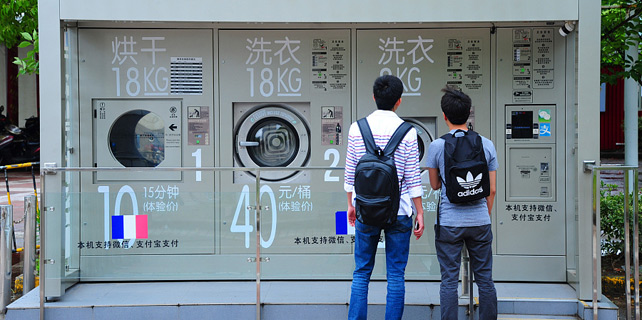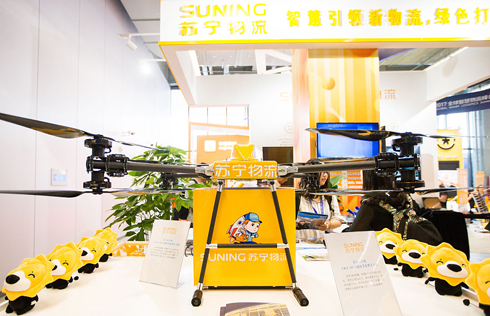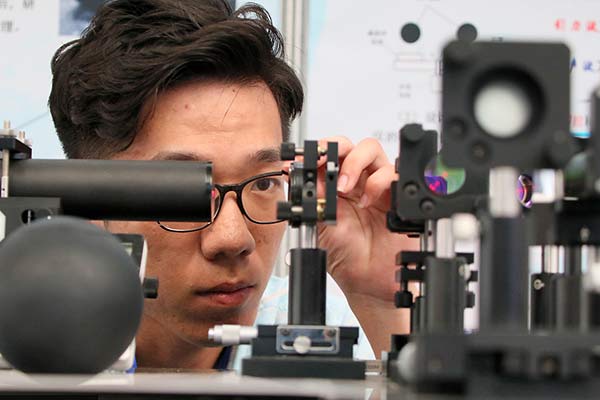Chinese market, German innovation a recipe for success
BERLIN - Combining German technology with Chinese efficiency, innovation is a keyword in Sino-German economic cooperation, say attendees at the Asia-Pacific Weeks (APW) event in Berlin.
The 12th APW, taking place from May 15 to 28, is a unique platform in Europe for interdisciplinary dialogue and cooperation between Asia and Europe.
The China Forum attracted more than 100 Chinese and German delegates from governments, enterprises, industry organizations and institutions to discuss innovation in the Sino-German economic and trade relationship.
Growing presence
Despite sluggish global growth, Sino-German cooperation remains strong and there are frequent high-ranking visits between the two sides, Zhang Junhui, minister of the Chinese embassy in Germany, said during the forum, adding that Chinese leaders are expected to visit Germany later this year.
Data show that the trade volume between the two countries reached 170 billion euros (about 190 billion U.S. dollars) last year and China surpassed the United States to become Germany's largest trading partner, Zhang said.
According to Zhang, there are currently some 8,200 German companies operating in China and over 2,000 Chinese companies in Germany.
According to Germany Trade and Invest (GTAI), a Berlin-based foreign trade and investment promotion agency, China invested in 281 projects last year in Germany, holding its position as the largest foreign direct investor nation in Germany for the third consecutive year.
"China has been the country with the largest number of investment projects in Germany for three consecutive years, which shows the trust of Chinese companies in Germany as an investment destination," said Benno Bunse, CEO of GTAI.
"Through investment in Germany, more and more Chinese enterprises are able to explore the international market and to enhance their own brands and technology," he added.
Best combination?
China is one of the most important oversea markets for ALBA, said Zhang Pei, Berlin Representative ALBA China at ALBA Group, which focuses on waste disposal and resource regeneration.
She said during a discussion panel that German companies have good technology patents, but it would still be difficult for them to be successful when they go to China single-handedly.
The best way to success is to find a Chinese partner with an international perspective on the Chinese market, in order to adapt the German technology to actual practices in the Chinese market, she said.
Under the current situation, China urgently needs the world's leading solutions to solve its own problems related to urban waste. Meanwhile, German companies like ALBA also need broader markets after years of development in the German domestic market, according to Zhang.
"China's broad market and German technology is the best combination," she believed.
Zhang was echoed by Markus Gerlach, representative of German company CNP-Technology Water and Biosolids GmbH.
Gerlach told an audience that opportunities should be seized to deepen the cooperation between Sino-German enterprises in the field of water disposal.
The investment in water conservation infrastructure in China has bright prospects and the Chinese government is willing to invest in infrastructure and environmental protection to ensure the quality of economic development, Gerlach said.

























